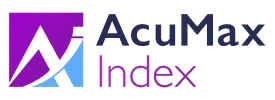As the world recovers from the pandemic, Americans have shown they are ready to spend money and jumpstart the economy, but employers are still struggling to hire and rebuild their workforces to meet the rising demand. Now more than ever, employers should be ready to bring on employees that may not fit an ideal candidate profile, but whose hardwiring makes them an ideal fit to grow with the business.
Amid the student-debt crisis, American workers are becoming more critical of the value of college degrees, with many deciding that job prospects are not worth the expense of attendance. Employers should likewise prepare to hire applicants whose resumes aren’t necessarily indicative of subject matter expertise, or even subject matter experience. Even absent these traditional indicators, employers can attract competent and valuable employees through intelligent and data-driven hiring techniques.
Here are three tips that you can follow to help your company as you start to think outside of the box during hiring.
Create honest job postings
Most candidates are likely to find job postings through online services such as LinkedIn and Indeed, but employers need to craft their postings in a way that makes good candidates likely to apply. Does the ideal candidate really need five years of industry experience, or could a candidate with strong problem-solving skills, the ability to learn quickly and a knack for detail be a better fit? Job postings should emphasize the true needs of the position, not serve as a gatekeeper for the ideal pedigree. By being honest with yourself and applicants about what you truly need, you will get a wider applicant pool and might have better luck finding a candidate.
Interview effectively and efficiently
AcuMax can help you to determine the wiring profile that is most likely to succeed in the role and then help you see which candidates best align with the desired wiring. This allows you to only spend time with candidates that are likely to succeed, rather than screening every applicant. This also allows you to focus on things beyond an applicant’s past experience and accomplishments. Employers should use interviews to assess the relevant skills the position demands. Problem-solving scenarios, open-ended questions, and even tasks designed to illustrate a candidate’s attention to detail can be a much more useful indicator of future performance. Companies are unique, even within the same industry; experience at a similar (or competitive) doesn’t demonstrate that a candidate is a good fit for your company.
Future-proof your workforce
Technology and world events have such profound impacts on the economy that skills relevant to today’s market are likely to be outdated in just a few short years. Most employers wouldn’t guarantee that their business will look exactly the same in five years, so it makes little sense to hire the candidate ideally suited for today’s job based on the candidate’s present skill set alone. Instead, employers should hire with an eye to the future, and recruit dynamic candidates prepared to grow and adapt along with the enterprise. Our hardwiring is something that we are born with and that doesn’t fluctuate drastically as we age.
Three Tips for Hiring Candidates Switching Careers





